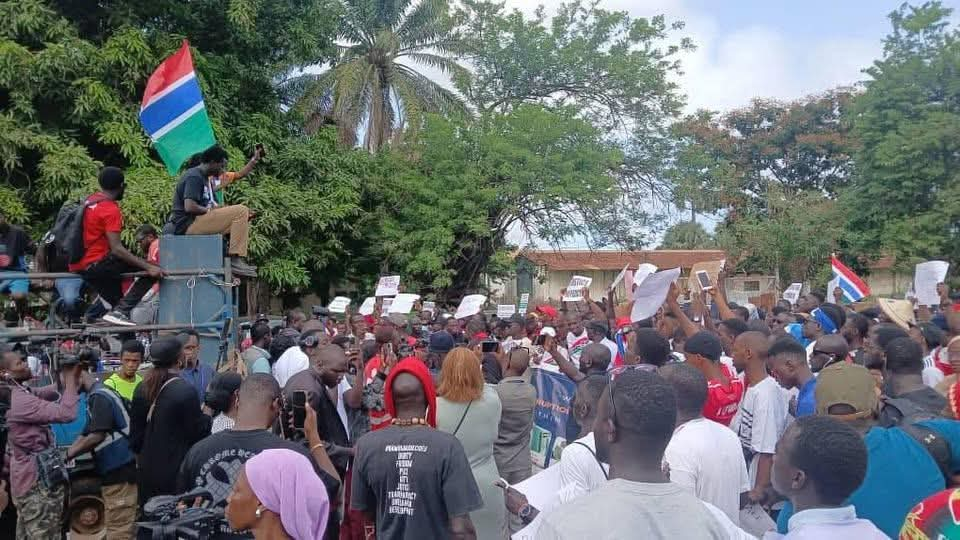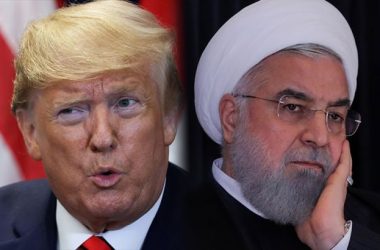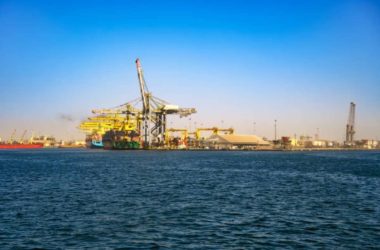
July 23, 2025, will be etched in history not only for the powerful roar of protest but also for the quiet triumph of a Constitution that has long been stifled.
Hundreds of Gambians young and old, hopeful and hardened marched through the streets of Westfield and across the Greater Banjul Area, determined to be heard in a democracy they fought hard to reclaim. The GALA protest, organized by the Gambian Youths Against Looted Assets, was more than a demand for accountability; it was a national reckoning, a civic examination that tested the commitment of citizens to democratic ideals. It measured who stood firm in their belief in democracy and who had once fled from their civic responsibilities.
Nine years have passed since Gambia began shedding its oppressive past. Since 2017, we have experienced uninterrupted civilian governance. Yet, democracy is not defined merely by the absence of coups; it manifests through courageous action. And on this day, courage was indeed abundant. To its credit, the Barrow administration approved the protest permit, a significant departure from the Jammeh era, when gatherings often led to imprisonment, torture, or even disappearance.
Under Jammeh, democracy existed only as a whispered hope behind locked doors. Protests were met not with dialogue but with heavy-handed responses from national security forces, tear gas, and betrayal by neighbors turned informants.

Today, many who once chose silence out of fear hid, hesitated, or reported fellow citizens to the National Intelligence Agency stood tall, marched forward, and reclaimed their voices. Those who once felt powerless now roared again, their civic manhood restored. This was a profound awakening of public conscience. Some perceived the protest as rebellion, while others regarded it as a celebration. Yet for GALA and its supporters, this demonstration was neither a political maneuver nor theatrical performance. It represented a collective mourning for lost public funds, rising inflation, and the relentless erosion of government accountability.
Yet an unsettling undercurrent ran through the march. Some opposition politicians and partisans arrived not in genuine solidarity but with strategic intent. They sought to redirect the voices of the people for their own electoral gains, muddying the line between civic conscience and political maneuvering. When protests become tools for electoral positioning, their potency diminishes. Independent activism cannot allow itself to be co-opted by partisan agendas; it must resist becoming a mere stage for political opportunists. If it doesn’t, the integrity of its message and purpose risks collapse.
Gambians must vigilantly safeguard protests not only against state control but also from the insidious appropriation by those who claim to stand with the people while pursuing private agendas. Activism must remain resolute and principled, not politicized. Otherwise, we do not protect democracy; we merely adorn it. This protest emerged amid a persistent crisis: a public sector plagued by corruption, a government slow to provide transparency, and a populace gripped by inflation. Many cannot afford basic necessities, even as hollow promises of prosperity echo from political podiums.
Thus, the streets transformed into sacred ground. The youths, once dismissed as fringe voices, now occupy the heart of our democratic memory. Their outrage is not a performance; it is a fervent moral call shaped by history, carrying the dignity of those who never sought police permits but found the courage to protest nonetheless.
While activists marked the day with bold banners and chants, pro-government voices argued it should be a day of joy, not dissent. But true democracy is resounding. It is uncomfortable and demands engagement; it does not call for mere celebration it demands confrontation. We do not honor democracy by glossing over its complexities. We honor it by safeguarding the rights of dissenters. Gambia is now freer than it has ever been, but this freedom must be nurtured through vigilance and a clear vision. It’s not enough to march once; we must continually resist complacency and hold our leaders accountable.
July 23 was more than just a protest; it marked a quiet revolution in our democratic culture—a profound shift from fear to fearless action. While Barrow’s administration presents ongoing challenges corruption lingers, youth unemployment is rampant, and political credibility must still be earned this government has not criminalized dissent like Jammeh’s regime. For that alone, it has displayed commendable civic restraint. Let us remember this day not just for the demands made, but for the freedoms granted.
May Democracy Day stand not as an end, but as a powerful beginning—a day when those who once whispered found their voices, a day when the Constitution walked boldly among its people, a day when manhood, womanhood, and citizenship rediscovered one another in the streets.





